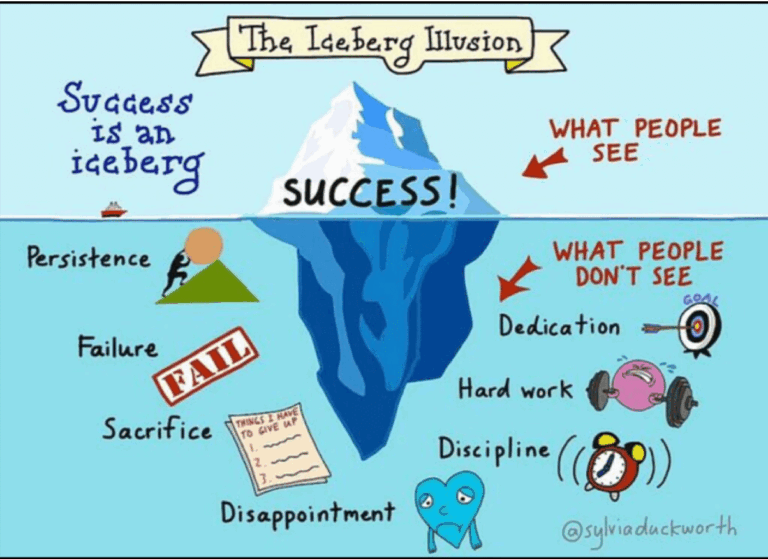What Is a Business Coach? Separating Hype from Help

The Search for Help
Marissa didn’t think she needed a business coach. She was smart, capable, already running a six-figure service business. She had systems, clients, and even a team.
But she also had a problem: everything rested on her. Every decision. Every sale. Every piece of marketing. And the bigger her business grew, the smaller her capacity felt.
Late one night, she Googled “business coach”—and instantly regretted it.
Pages of flashy promises filled her screen. “10x your income!” “Millionaire mindset!” “Quantum shifts!”
It all felt like fluff. She didn’t need hype. She needed help.
That’s when she stumbled on a different kind of coach. One who didn’t lead with revenue, but with relief. One whose homepage asked a question that landed deep in her chest:
“What if you didn’t have to hold it all?”
She booked the consult. And within 20 minutes, she knew: this was the kind of coaching that would actually move the needle.
The Business Coach Who Asked Better Questions
The first thing Marissa noticed? This coach didn’t talk about numbers right away. She talked about capacity.
Instead of “How much money do you want to make this quarter?” the coach asked:
- “What do you want your days to feel like?”
- “Which clients energize you, and which ones drain you?”
- “If you could hand off three tasks tomorrow, what would they be?”
This wasn’t about adding more to her plate. It was about looking honestly at what she already carried, and whether her systems, marketing, and team were aligned to her goals.
That’s what real coaching does. It asks better questions—the kind that cut through noise and reveal clarity.
What Real Business Coaching Looks Like
Forget the image of someone hyping you up with motivational slogans. Real business coaching is practical, grounded, and designed to make your next step clearer, not more complicated.
For Marissa, that looked like:
- Weekly calls focused on her strategic priorities—not just mindset.
- A systems review built around her real calendar, not a theoretical ideal.
- Messaging refinement to attract better-fit clients and reduce constant chasing.
It wasn’t fluffy. It was focused. And it created immediate breathing room.
Where the Hype Hurts Small Business Owners
The problem with much of the coaching industry is that it promises transformation without definition. You’ve seen the phrases:
- “Get aligned” with no map of what that means for your actual offers.
- “Step into your power” without a practical way to organize your schedule.
- “Scale with ease” when you’re barely sleeping as it is.
These phrases sound good on Instagram but fall flat in reality. Hype might inspire you for a moment, but it doesn’t solve the root problems keeping your business stuck.
And for small business owners, hype can actually make things worse—because it convinces you that if you’re not hitting big milestones overnight, you must be failing.
Real coaching bridges the gap between big goals and daily decisions. It gives you tools to actually apply strategy, not just dream about it.
The Different Kinds of Business Coaches
If you’re wondering, “What is a business coach, really?” the answer depends on who you hire. Not all coaches are created equal, and the coaching industry has a wide range of specialties.
Here are a few types you might encounter:
- Mindset Coaches: Focus on confidence, limiting beliefs, and personal growth.
- Marketing Coaches: Help you clarify messaging, build funnels, and create visibility.
- Operations Coaches: Improve systems, processes, and team efficiency.
- Executive Coaches: Guide leadership skills and decision-making for growth.
- Hybrid Coaches: Blend strategy, mindset, and execution for small businesses.
The key is to know what you need. If you’re struggling with clarity and lead generation, a marketing strategist might be best. If you’re drowning in tasks, an operations-focused coach could help. And if you need someone to see the whole picture, a hybrid strategist can give you balance.
What Help Actually Feels Like
One of the biggest misconceptions about business coaching is that it adds more to your to-do list. The right coaching does the opposite: it simplifies.
Here’s what coaching that actually helps feels like:
- Your offers get simpler, not sexier. You stop juggling four different services and focus on one signature path that works.
- Your schedule feels possible, not perfect. Instead of “hustle harder,” you build days you can sustain.
- Your marketing finally sounds like you. No more copying competitors or chasing trends—you show up authentically.
Marissa didn’t need another PDF playbook or motivational pep talk. She needed support from someone who had seen the inside of a small business—not just the outside of a funnel.
Why Business Coaching Works
Coaching works because it creates space. When you’re in your business every day, it’s hard to see clearly. You’re too close to the problems, too busy managing details.
A coach gives you perspective, structure, and accountability. They don’t run your business for you—but they help you see patterns, make decisions, and implement changes that you couldn’t see alone.
For small business owners, that outside perspective can be the difference between staying stuck in the grind and finally creating breathing room.
The ROI of a Good Coach
Hiring a coach is an investment, and like any investment, you want to know the return. The ROI of business coaching isn’t just about revenue. It’s about capacity, clarity, and growth that lasts.
We’ve seen clients:
- Cut their working hours by 30% while increasing profit.
- Stop wasting money on ad strategies that didn’t fit their audience.
- Rebuild their offers so they were easier to sell and easier to deliver.
- Finally feel confident enough to delegate and grow their team.
The financial wins matter. But the personal wins—like reclaiming evenings with family, or waking up excited instead of exhausted—are just as valuable.
What to Look For in a Business Coach
Not every coach is the right fit. And honestly, that’s a good thing. You want someone who matches your goals, your stage of business, and your personality.
Look for a coach who:
- Listens more than they talk.
- Customizes their support instead of offering cookie-cutter frameworks.
- Explains strategy in plain language you actually understand.
- Has real experience working with businesses like yours.
- Offers accountability without judgment.
And just as important—watch out for red flags:
- Overpromising results without clear steps.
- Buzzword-heavy pitches that lack substance.
- Packages that lock you in without flexibility.
- No reporting or tracking of progress.
Final Word: Coaching Should Help You Lead—Not Just Hustle
So, what is a business coach?
At its best, a business coach is a partner who helps you see what you can’t see, simplify what feels messy, and build a business that fits your life—not just your revenue goals.
A good coach doesn’t promise magic. They bring clarity, strategy, and support so you can make smart, aligned moves. And the best ones? They help you trust your own voice more than theirs.
If you’ve been wondering whether coaching could help, the real question is: What would change if you didn’t have to hold it all by yourself anymore?
Explore Coaching with Lisa Benson
Book a Clarity Call
Start with the 9-Line Business Roadmap






